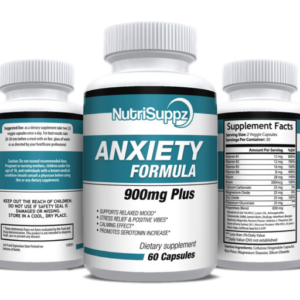03 Sep Sweating It Out: How Anxiety Affects Your Perspiration
Sweating It Out: How Anxiety Affects Your Perspiration
At Nutrisuppz, we aim to provide comprehensive insights into how different aspects of health and wellness intersect. Today, we’re focusing on a common but often misunderstood issue: the relationship between perspiration and anxiety. If you’ve noticed excessive sweating and are wondering whether anxiety might be a factor, this blog post will help you understand the connection and explore ways to manage it effectively.
Understanding Perspiration
Perspiration, or sweating, is a natural physiological process that helps regulate body temperature. The body has two types of sweat glands: eccrine and apocrine. Eccrine glands are found throughout the body and produce a watery sweat that cools the skin. Apocrine glands, located mainly in the underarms and groin, secrete a thicker sweat that can be more prone to odor when broken down by bacteria.
Sweating is typically triggered by various factors, including heat, physical exertion, spicy foods, and emotional stress. However, excessive sweating, or hyperhidrosis, can sometimes occur without a clear external cause.
The Impact of Anxiety on Perspiration
Anxiety is a psychological condition characterized by intense feelings of worry, fear, or unease. When you experience anxiety, your body’s stress response is activated, which can significantly impact your physiological processes, including sweating.
During periods of anxiety, the body enters a “fight-or-flight” mode, releasing stress hormones like adrenaline. This hormonal surge can stimulate the sweat glands, leading to increased perspiration. People with anxiety may find themselves sweating excessively even in situations where sweating would not typically occur, such as during calm or routine activities.
Symptoms of Anxiety-Induced Perspiration
Anxiety-induced perspiration can manifest in various ways, including:
- Excessive sweating of the palms, feet, or underarms.
- Sweating in situations that don’t warrant it, such as during normal conversations or while sitting still.
- Noticeable increase in sweat production during anxiety or panic attacks.
These symptoms can be distressing and may contribute to feelings of embarrassment or self-consciousness, further exacerbating anxiety.
Managing Anxiety-Related Sweating
Effectively managing anxiety-related sweating involves addressing both the physical and psychological aspects of the condition. Here are some strategies that can help:
Stress Management Techniques: Practices such as mindfulness, meditation, and deep breathing exercises can help reduce anxiety and, consequently, sweating. These techniques help calm the nervous system and decrease the activation of the sweat glands.
Therapy: Cognitive-behavioral therapy (CBT) and other therapeutic approaches can be effective in managing anxiety. By addressing the root causes of anxiety, therapy can reduce the overall stress response and its impact on sweating.
Lifestyle Adjustments: Incorporating regular physical activity, maintaining a healthy diet, and ensuring adequate hydration can help manage stress levels. Wearing breathable, moisture-wicking fabrics can also minimize the impact of sweating.
Medical Interventions: In some cases, medical treatments may be necessary. Options include prescription antiperspirants, medications that target anxiety, and even therapies like Botox injections for severe hyperhidrosis.
Conclusion
Understanding the connection between perspiration and anxiety can help you take proactive steps to manage both conditions effectively. By addressing anxiety through stress management techniques, therapy, and lifestyle changes, you can reduce the impact of anxiety-induced sweating and improve your overall quality of life.
At Nutrisuppz, we’re dedicated to supporting your journey to better health. If you’re struggling with excessive perspiration and anxiety, consider exploring our resources or consulting with a healthcare professional to find the best approach for your needs.
We hope this blog post provides clarity on the relationship between perspiration and anxiety. Stay informed and take control of your health with confidence.




No Comments